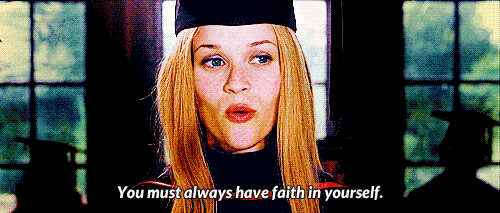I've seen "Legally Blonde" at least 20 times, and with each (usually involuntary) viewing, my loathing intensifies. See, Elle Woods is the fictional character who taught me to hate sorority life. Blonde, blue-eyed, exceedingly perky, and decked out head-to-toe in her signature pink, Elle represented everything I despised about femininity.
Why would I ever want to join a group of bleach-blonde bimbos who care more about what's on top of their head than inside it? No, I had too much dignity to join a sorority, or so I thought. Once I got to college and actually rushed, I was pleasantly surprised at how intelligent, compassionate, and driven sorority women were. When I finally joined a sorority myself, however, I quickly grew tired of having to disprove those negative sorority stereotypes to people around me.
Based on my personal experience, I decided to do my final paper for my Women and the Media summer class on mainstream representations of sororities. Naturally, I included "Legally Blonde." While I couldn't wait to rip this film a new one (through careful analysis supported by a feminist theoretical framework,) it appeared a lot of writers on the internet didn't feel the same way. In fact, they liked the movie and even considered it *gasp* feminist. I was shocked; how could Elle, the physical embodiment of the male gaze, possibly be a feminist role model?
Surprisingly, the articles I read did bring up some good points. While it's true that Elle did initially go to Harvard to win back her ex-boyfriend, Warner, she ends up discovering that she is actually quite intelligent. She goes on to win a prestigious internship, get her creepy, sexual-harassing professor taken off the case, and go on to win the trial. Plus, she always supports her girl friends, even Vivian, who could have easily stayed her enemy. At the end of the movie, she gives a heartwarming valedictorian speech about being true to yourself, believing in others, etc.
Seems pretty empowering, right? Elle overcomes all of those dumb blonde stereotypes and proved that she is smart and capable, all while wearing her hyper-femme power attire. But, wait, there are still some problems. Sure, Elle wins the trial, but how does she do so? When Brooke Windham's pool boy, the prosecution's star witness, tells Elle that her shoes are "last-season Prada," she knows that something is up. When she asks decidedly-heterosexual Warner what type of shoes she has on, he replies, "Black?" Thus, proving that straight men don't know fashion labels. Since Enrique does, and he's wearing flashy clothing and has a lisp, Elle concludes that he is gay, a conclusion that is eventually proven right.
Furthermore, she knows that Chutney is lying based on her own knowledge of perm maintenance. Indeed, the most impressive part of her questioning is when she correctly pronounces "ammonium thioglycolate." Knowing that Elle won the trial not because of her superior lawyer skills, but because of her hair care and gay-male-stereotype knowledge makes her success a lot less inspiring, to me, anyway.
In Greek life, there are so many different types of sorority women: smart, sporty, nerdy, quiet, and yes, perky and blonde like Elle. Since sorority life is so diverse, why are we all still defined by the same, tired cliche? It's about time that movies and TV start representing different types of sorority women, proving that we didn't just join to have a good time.





















